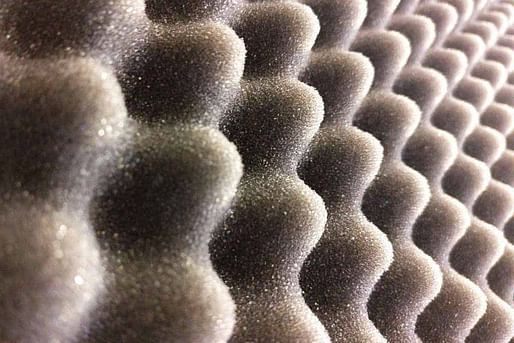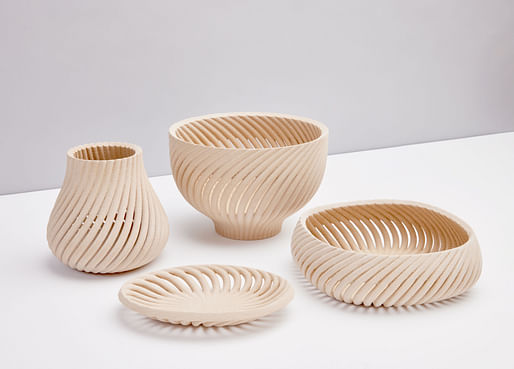
If there’s one thing that 2021 has shown us, it is that, for better or for worse, the world is evolving faster than ever. While this is a natural phenomenon, it’s apparent that the onset of the Covid-19 pandemic has exacerbated the level of uncertainty the world faces. Sociopolitical and economic issues as well as the increasing threat of climate change have also been added to the mix, intertwining to shape our collective consciousness. With this, new approaches and solutions have been required in order to both adapt to this new reality and make it better.
The AEC industry, in particular, has been spurred to change. An influx of new technology, from carbon-calculating software to the development of new, sustainable materials, has been a major response by a field with such a large influence on each of these issues.
Throughout the year, Archinect closely covered a wide selection of these advancements. Here's a selection of those that stood out.
Skydio releases autonomous drone software that can create detailed 3D models in real-time
U.S. autonomous drone manufacturer Skydio launched an adaptive scanning software called Skydio 3D Scan that allows its drones to generate detailed 3D models of real-world settings.

A Norwegian company by the name of Wind Catching Systems is developing the technology for 1,000-foot-tall, offshore wind turbine farms that are organized in stacked, square grids. The company claims the grids will increase efficiency, reduce land use, and reduce production costs compared to traditional wind farms.

Ohio State researchers discover new method for designing soundproof spaces
Researchers from The Ohio State University developed a new type of design approach, in which resonators are embedded directly into a material. They found that the resonators were effective in reducing vibrations and could have multiple real-world applications, such as creating better soundproof building walls and airplane frames that lessen the sound that enters the cabin.

Research team invents new 'smart' window that diminishes heat without blocking views
An international research team led by scientists from Nanyang Technological University, Singapore invented a new window material that can block infrared radiation without blocking views. The technology could help reduce the energy required to cool and heat buildings.
Professory Ippei Maruyama and Calcium Carbonate Circulation System for Construction (C4S) project manager Professor Takafumi Noguchi out of the University of Tokyo's Department of Architecture have discovered a method to combine concrete waste and captured carbon dioxide to create a new form of concrete called calcium carbonate concrete. This process, inspired by the way some aquatic organisms harden into fossils over time, has the potential to reduce emissions in the construction industry.
Recycled paper could cool buildings without electricity, say researchers
A team of researchers at Northeastern University has created a "cooling paper" made from 100% recycled paper that can cool buildings without the need for conventional AC systems. Its light color reflects solar rays away from buildings, and its porous microstructure absorbs warmth generated inside buildings, re-emitting the warmth to their exteriors.
The world's first fossil-free steel
Swedish steel manufacturer SSAB announced that it produced the world's first fossil-free steel. The development team was able to replace coking coal with fossil-free electricity and hydrogen. While automaker Volvo plans to experiment with the new material through the production of prototype vehicles and parts, the technology certainly has the potential for widespread application in building construction. This is an exciting breakthrough given how carbon-intensive steelmaking is.

Forust, a subsidiary of Massachusetts-based company Desktop Metal, has found a way to turn upcycled wood waste into material for 3D printing.
Meet the Architects Designing Software to Fight Climate Change
This feature piece highlights four architecture and design studios who are developing digital tools for the AEC industry that respond to the climate crisis.
No Comments
Block this user
Are you sure you want to block this user and hide all related comments throughout the site?
Archinect
This is your first comment on Archinect. Your comment will be visible once approved.